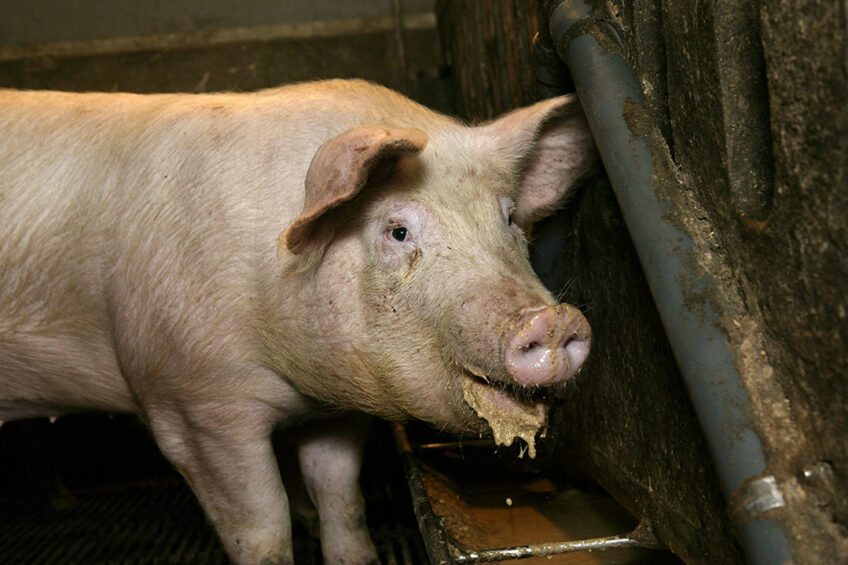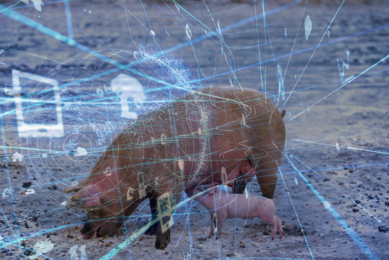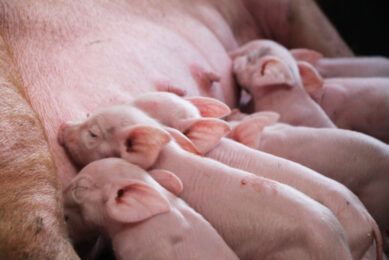Study shows that sows favour flavoured feed

Researchers in China set out to evaluate the effect of flavoured feed on reproductive performance and faecal microbiota of sows during late gestation and lactation. An overall positive effect on feed intake of sows and performance of piglets was evident.
An increase of feed intake of lactating sows might be beneficial to maternal condition as well as the growth of nursery pigs. Feed flavours as palatability enhancers and feed attractants to increase feed intake have been widely used in nursery pig diets from as early as the 1960s. However, according to the researchers* of this study, the effect of flavour addition on the performance of sows was not well known.
The role of gut microbiota
Furthermore, gut microbiota undergoes a shift during pregnancy and lactation, which is widely believed might be passed onto the developing foetus or newborn piglets through the placenta or maternal milk, indicating that gut microbiota of the sows plays an important role in the performance of both the maternal and offspring pigs. There is, however, limited data on the effect of dietary flavour on gut microbiota, although the team hypothesised that flavour supplementation during late gestation and lactation periods would improve reproductive performance by improving feed intake and regulating gut microbiota of the sows.
Young Animal Feed – special focus
Investing in the feeding of young animals is extremely important as it impacts their performance later on in life. This special will bring you the latest insights and developments regarding young animal nutrition. Find out more…
Flavoured feed
In this study, 20 healthy Yorkshire sows were artificially inseminated with semen from Landrace boars and fed a soybean basal diet either unsupplemented or supplemented with 1g of flavour/kg diet (milk flavour) from day 90 of gestation to 25 days post-farrowing. Sows were fed twice a day during gestation with a total of 2.7 kg/day gestational diet, and 3 times a day during lactation with a total of 1.5 kg/day lactational diet on day 1 and 2.5 kg/day on day 2. Sows were fed 0.5 kg more feed each day from day 3 to day 7, and then ad libitum from day 8 to 25. The piglets were weaned and the reproductive performance and the faecal microbiota of sows were analysed.
Performance of sows and piglets
There was a trend of increasing average daily feed intake of sows with the addition of flavour in maternal diets. Furthermore, compared with the control group, flavour supplementation in maternal diets increased weaning litter weight, litter weight gain, weaning body weight, and average daily gain of piglets. Backfat thickness and litter size were not affected by flavour supplementation. Flavour supplementation significantly increased the abundance of Phascolarctobacterium, but significantly decreased genera Terrisporobacter, Alloprevotella, Clostridium sensu stricto 1, and Escherichia-shigella. Phascolarctobacterum was positively correlated with the average daily feed intake of sows, the litter weight gain and average daily gain of piglets. In contrast, Clostridium sensu stricto 1 and unclassified Lachnospiraceae were negatively correlated with the litter weight gain and average daily gain of piglets.
Taken together, dietary flavour supplementation improved the reproductive performance of the sows, which was associated with enhanced beneficial microbiota and decreased potentially pathogenic bacteria in the gastrointestinal tract of the sows.
* This study, published on Science Direct, was conducted by researchers Renjie Wang, Yuchen Yang, Zhaolai Dai, Zhenlong Wu, Defa Li (State Key Laboratory of Animal Nutrition, China Agricultural University), Ning Liub (Department of Nutrition and Health, China Agricultural University), Yan Lei, Jirong Lyu (DadHank Biotechnology Corporation), In Ho Kim (Department of Animal Resource & Science, Dankook University) and Ju Li (Henan Yinfa Animal Husbandry).












